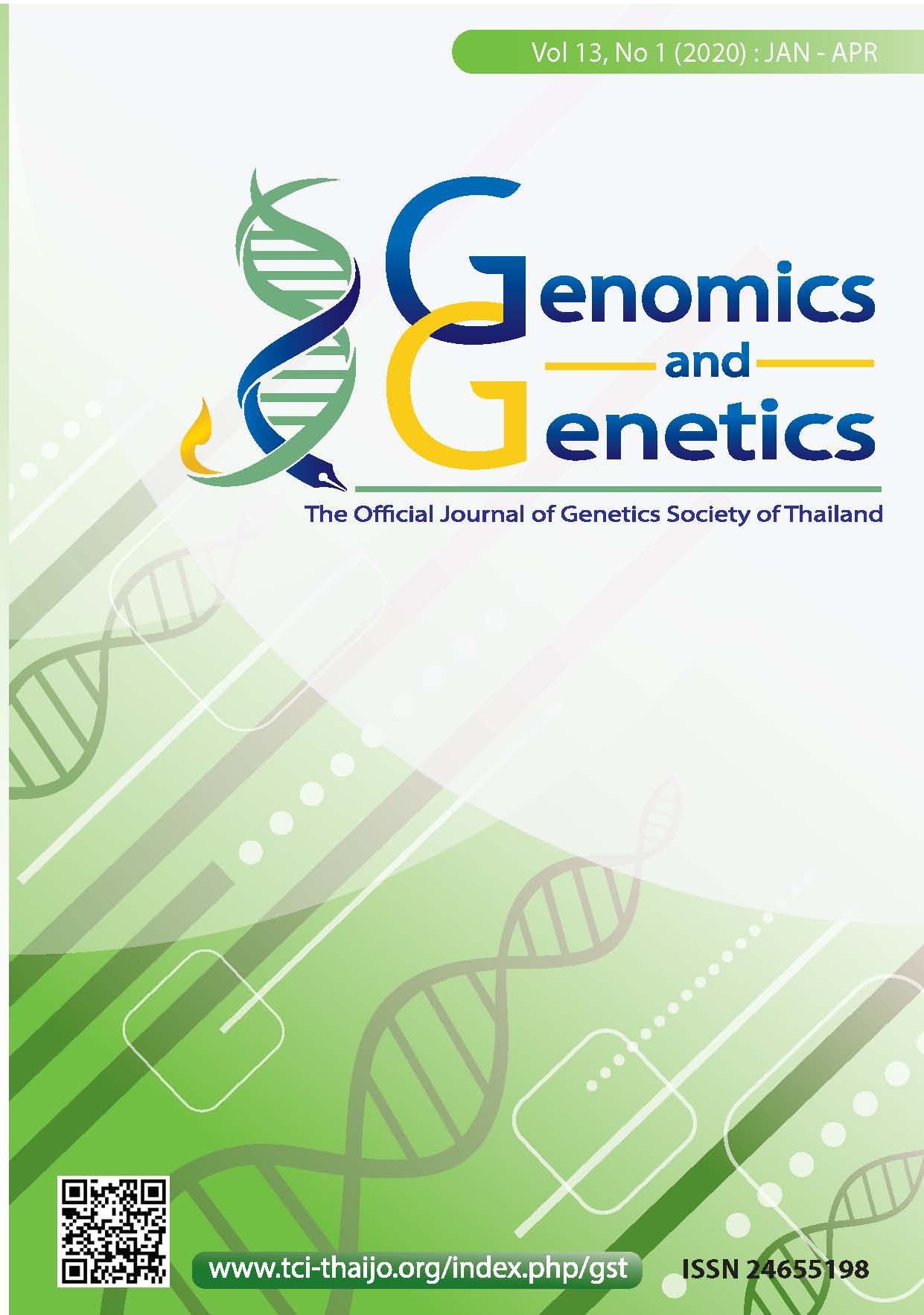A report of schizophrenia in a patient with chromosome 3p26 deletion
DOI:
https://doi.org/10.14456/gag.2020.2Keywords:
schizophrenia, CNV, SNP array, 3p26 microdeletionAbstract
A-41-year-old female patient presented at a psychiatric clinic at Ramathibodi hospital. She was diagnosed as having schizophrenia 11 years ago (under the DSM-IV-TR criteria). She appeared to have poor insight and poor compliance. She had both visual and auditory hallucination. She also had suicidal thought, but never attempted because of embarrassment. The patient's past medical record and family history showed that she drinks 1-2 bottles of alcohol per day. She has already been divorced twice. Her parents were also divorced. Other members in her family have no psychiatric history. Single nucleotide polymorphism (SNP) array revealed a 4.7 Mb deletion on the short arm of chromosome 3 within bands p26.1-3p26.3 encompassing CNTN4 and CNTN6, which are genes associated with intellectual disability/developmental delay (ID/DD), growth retardation, and dysmorphic features. This deletion results in chromosome 3p26 deletion syndrome and is linked to autism spectrum disorders (ASD). Multiple genes in the aberrant region play a role in synaptogenesis, synaptic transmission, and neurological development. Interestingly, chromosomal aberration in this region has not been previously reported to be associated with schizophrenia. This finding suggests that patients with 3p26 microdeletion have a potential to exhibit neuropsychiatric symptoms and that 3p26 might be a novel candidate locus for schizophrenia.
Downloads
Published
Issue
Section
License
Copyright (c) 2020 Genomics and Genetics

This work is licensed under a Creative Commons Attribution-NonCommercial-NoDerivatives 4.0 International License.



